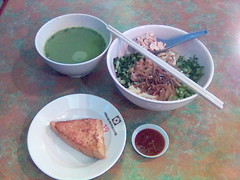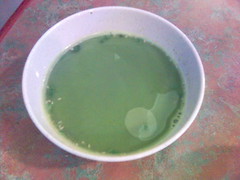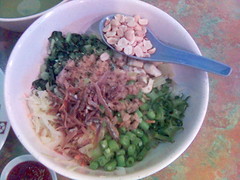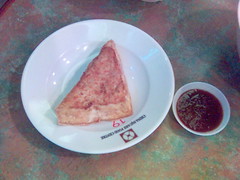On any Chinese forum, if some one publishes a post which relates to Japan, you can expect it to spur some uproar that bash and attack Japanese.
It is not uncommon that you see something like,
“Japanese men are all perverts!!!!!”
“Kill all Japanese!!!”
“Rape all the Jap’s gals!!!”
…
You can find many comments worse than those in discussion on topics relate to Japan.
For example, when someone asked, “Is the public security very bad in Japan? The gangsters shoot people to death on the street everyday in every city?”
Immediately, there was a response, “Japan is the worst place in the world…” And some other very strong bad words came up.
This guy asked, “Is Tokyo full of hookers?”
Again, something like ^#&#@&*(&^ followed up.
Another asked, “How’s the performance of the Honda Accord?”
Don’t be surprised that you find response like, “Burn all the Japanese cars!! Kill all the Japs!! We shall not buy any Japanese products.” even though Honda has a big factory in China, producing Accord.
After a few rounds, you can find that, on those forums, many Chinese know very little about Japan. They get the information about Japan merely from the movies, the story books, and the media. Unfortunately, they can get few comprehensive introductions to Japan from those channels.
In fact, most Chinese know much more about the US than about Japan.
I was excited to see the article The huge difference between Chinese and Japanese net users on BBS on a BBS.
It is obvious that the author of this article knows Japanese and is a frequent visitor to both the Chinese and Japanese forums.
The most interesting thing is that the author has observed the net users carefully and made some in depth analysis on the different behaviors between Chinese and Japanese on BBS dispassionately (relatively).
I have very limited knowledge of Japanese too. But at least, many of his observations on Chinese are very close to my experience on Chinese BBS.
Nevertheless, it is very hard, if not impossible, to make a generalization on any culture in the world. And the author’s views will be inevitably biased by his background and limited by his experience. If we can read it with a grain of salt, such analysis is always good for both parties to understand each other.
Hope the translation can contribute a bit to bridge the huge gap between the two cultures which are the same in many westerners’ eyes.
The huge difference between Chinese and Japanese net users on BBS Continue reading “How Chinese view Japanese on the net?”




